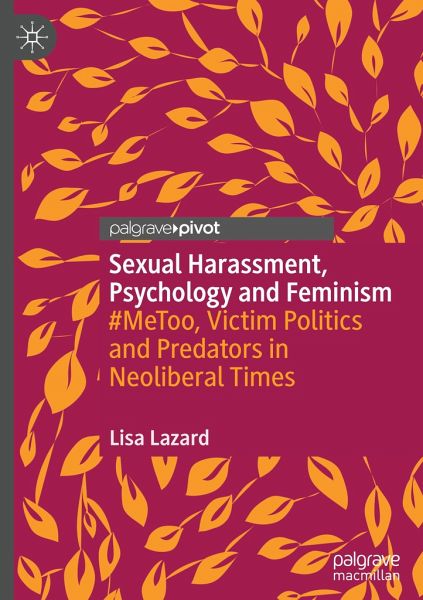
Sexual Harassment, Psychology and Feminism
#MeToo, Victim Politics and Predators in Neoliberal Times

PAYBACK Punkte
25 °P sammeln!
This book provides a feminist psychological analysis of contemporary resistance to sexual harassment in and around #MeToo. It explores how women's assumed empowerment in postfeminist and neoliberal feminist discourses has shaped understandings of sexual harassment and social responses to it. This exploration is grounded in the trajectories of feminist activism and psychological theory about sexual harassment. Lazard addresses the gendered binary of female victims and male perpetrators in contemporary victim politics and the treatment of perpetrators within postfeminist and neoliberal frames. I...
This book provides a feminist psychological analysis of contemporary resistance to sexual harassment in and around #MeToo. It explores how women's assumed empowerment in postfeminist and neoliberal feminist discourses has shaped understandings of sexual harassment and social responses to it. This exploration is grounded in the trajectories of feminist activism and psychological theory about sexual harassment. Lazard addresses the gendered binary of female victims and male perpetrators in contemporary victim politics and the treatment of perpetrators within postfeminist and neoliberal frames. In doing so, the author unpacks the cultural conditions which support or deny who gets to speak and be heard in #MeToo politics.
This book will be a valuable resource not only for scholars and students from within the psychological sciences and gender studies, but for the wider social sciences and anyone interested in the psychological grounding of the #MeToo movement.
This book will be a valuable resource not only for scholars and students from within the psychological sciences and gender studies, but for the wider social sciences and anyone interested in the psychological grounding of the #MeToo movement.














